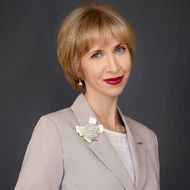Talking Chinese, Writing Articles, and Drinking Tea: What Chinese Club Students Did this Year

The HSE Chinese Student Club at the Faculty of World Economy and International Affairs School of Asian Studies has completed its 2021/22 season. Its participants and organisers talked to the HSE News Service about how they discuss China’s socio-economic, political, and cultural development as part of the club’s events.
The mission of the HSE Chinese Student Club is to provide an environment for informal communication between lovers of the Chinese language and Chinese studies, as well as to popularise knowledge about China. Chinese Club hosts speaking meetings, screenings of films in Chinese with discussions, and meetings with scholars who study China. The Club’s participants prepare interviews with experts on China and publish educational materials on a variety of topics related to China’s traditional culture, history, arts, literature, economics, politics, and Russia-China relations.

Alexandra Sizova, Associate Professor, Deputy Head, School of Asian Studies, Faculty of World Economy and International Affairs
‘The club cooperates with the Chinese Department of the School of Asian Studies. We organise joint events. This year, our Chinese colleagues, School of Asian Studies lecturers Liu Jingpeng and Zhu Fan, participated in the Club’s activities, which are supervised by Maria Efimenko, who is also a lecturer at the School.’

Maria Efimenko, Lecturer at the Faculty of World Economy and International Affairs School of Asian Studies
‘The Club had ten speaking meetings this academic year. The students have met researchers, a calligrapher, a Guo Hua (traditional Chinese painting) artist, and other professionals. The Club’s members include about twenty students who organise meetings and communicate to speakers and guests.’
Vitaly Senotrusov, second-year student of the School of Asian Studies
‘What appeals to me about the Club is the team of likeminded people. Moscow, as well as Russia at large, has only a few places where one can network with people who study China, who love what they do and are willing to promote it.
I am thrilled with the range of the Club’s activities: from films and conversations, to discussing Chinese traditions and holidays, to telling each other about renowned China researchers
Over the year, we have participated in and organised a lot of events, both larger one-time ones and smaller regular meetings. These skills will be useful to us when we start working as professionals.
As a host of the speaking club, I was surprised to see that as we organised online meetings during the year, they attracted not only students of different Moscow universities, but people from various Russian cities, aged 30 to 40, who stopped learning the language a long time ago, but are willing to practice it. One of our regular online guests was Sergey, a plumber-engineer from Novosibirsk. Such a varied audience only piques our interest to continue the speaking club’s activity.
In the next academic year, we are going to continue exchanging experiences with Chinese clubs at other universities, and we will probably organise some joint events.’
Elizaveta Trubnikova, third-year student of the School of Asian Studies
‘I love how the club offers immersion in Chinese culture and informal communications. It is great to learn something new and read articles by students.
It’s always a pleasure to talk, to drink some Chinese tea, or watch a Chinese film
The cinema club is my favourite. We have watched films with other students and Chinese participants. The discussions that followed were thrilling—they gave me a different perspective on what I had heard and watched.’
Anastasia Kamalyagina, third-year student of the School of Asian Studies
‘Chinese club means new experiences, new friends, and, of course, new knowledge about Chinese culture. Each of us can choose a topic to their taste and dive into it, be it arts, literature, economics, green energy, or cinema.'
Talking in Chinese with people who love it as much as you do is always a powerful experience
Rinat Abzalilov, third-year student of the School of Asian Studies
‘The main advantage of Chinese Club is complete freedom. We are free to choose any China-related topic and work on it: write articles, organise meetings and events. The HSE Chinese Club has a lot of participants, and each chooses what they are interested in, but when we organise events, we join our efforts to make them as good as possible. I like the club’s participants: they are all interesting and smart people, and it is a pleasure to talk to them and just be in their company.
We are always happy to see new participants! Come next year—it will be interesting.’
Maria Efimenko
Lecturer, School of Asian Studies
Alexandra Sizova
Associate Professor, School of Asian Studies
See also:
New Opportunities: ICEF Hosts China’s SWUFE Delegation
On May 22, ICEF HSE hosted a delegation from the Southwestern University of Finance and Economics’ Research Institute of Economics and Management (RIEM SWUFE) in Chengdu, China, led by RIEM Executive Dean Professor Dong Yan. The parties exchanged signed copies of a cooperation agreement for the joint delivery of a Double-Degree Bachelor Programme in Economics and Finance. They also discussed future prospects for cooperation in areas such as a joint Master’s programme, student and faculty exchange, summer schools, and joint research projects.
Charming East: HSE University Hosts Anniversary Oriental Crazy Day 2024
At the end of May, HSE University hosted the traditional Oriental Crazy Day. This year the holiday was held for the tenth time. For students, this is an opportunity to show their talents on stage, take part in fortune-telling with the Book of Changes, and learn more about the diversity of Asian cultures as well as the bachelor’s programme ‘Asian and African Studies.’
‘The Russian-Chinese Partnership: A Stabilising Factor in the World’
A delegation from the Chinese Academy of Social Sciences (CASS) visited HSE University. As part of the visit, a roundtable discussion on ‘Russia and China: Comprehensive Partnership and Strategic Interaction in a New Era’ was held. Participants discussed issues related to the Russian-Chinese strategic interaction in global and regional security, finance, trade, and investment. The meeting was moderated by Victoria Panova, Vice Rector of HSE University, Head of the BRICS Expert Council–Russia, and Russia's Sherpa in the ‘Women's Twenty.’
HSE University Students to Help Russian Brands Enter Chinese Market
Foreign students from HSE University recently took part in the project of the School of Entrepreneurship for international students ‘Start your business with Moscow!’. Wang Yue, 31, first-year student of the HSE GSB Master's programme in International Management from China, became one of the most active participants in the project. She shared her impressions of participating in the training with the HSE News Service.
HSE University and Top Chinese Universities: Partnership Based on Mutual Respect and Trust
In mid-April 2024 representatives of several leading universities in China visited HSE University in Moscow. A delegation from Dalian University of Foreign Languages (DUFL), led by Rector Liu Hong, came to sign a cooperation and exchange agreement, while representatives of Xi'an Jiaotong-Liverpool University (XJTLU), led by Board Member and Vice President Chao Qiuling, discussed expanding potential areas of interaction within the existing cooperation and exchange agreement.
‘High Grades Open Up Many Opportunities for You Here’
Bai Xinyi, 24, comes from Ankang, a small city in China. She is pursuing a master’s degree in Economics and Economic Policy, with a focus on Behavioural Economics, in the HSE Faculty of Economic Sciences. Below, she speaks about the application process, shares some details of her favourite courses, and reminisces about talking to friendly passers-by in the streets of Moscow.
‘If You Can Show that You Are Willing to Speak Russian, People Are So Friendly’
Jiayi Xu is a first-year student of the Master’s in Comparative Social Research at HSE University in Moscow. Having now spent five months living and studying in Moscow, Jiayi shares her thoughts about life in Moscow so far, her love of visiting the library, and the differences between education in China, the US, and Russia.
Tea Ceremony, Naruto and Norigae: HSE Celebrates Year of the Green Wood Dragon
On the day of the second new moon after the winter solstice, the HSE Cultural Centre welcomed admirers of Chinese, Japanese, Korean, and Vietnamese cultures. HSE students, teachers, and guests celebrated the Lunar New Year with South Korean hit songs and popular anime openings. They attended calligraphy and origami classes, tried regional sweets, and had Far Eastern teas. The festival ended with a big concert.
‘Winter in Russia is a Season of Romance and Cold, Solemnity and Vitality’
Over 450 international students from all over the globe currently study at the HSE Faculty of Economic Sciences. Some of them have recorded video greetings, talked about celebrations in their home countries, and shared their ideas on how to spend the winter holidays in Russia.
‘We and Our Chinese Colleagues Have a Common Approach to Solving Modern Challenges’
During a visit to China, an HSE University delegation headed by Vice Rector Victoria Panova arranged to extend cooperation agreements with Fudan University and East China Normal University (ECNU). Particular attention was paid to expanding students’ and teachers’ academic mobility between universities.


